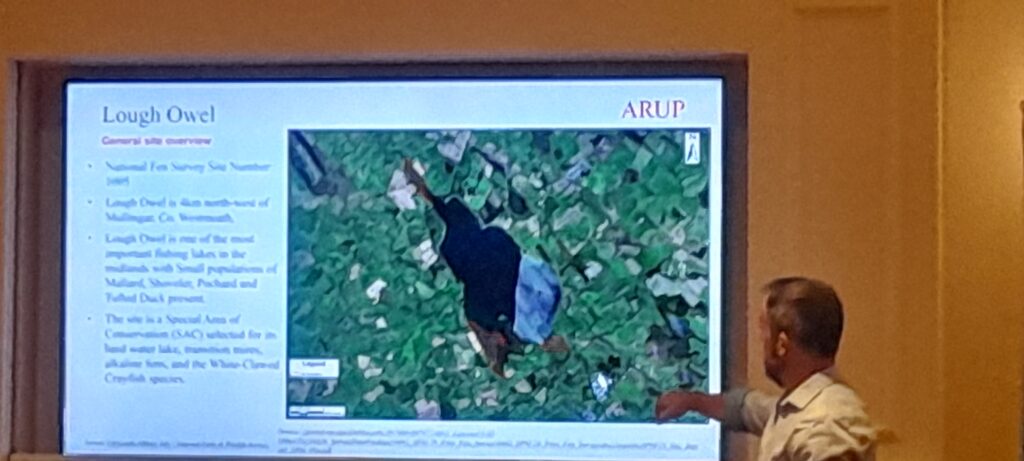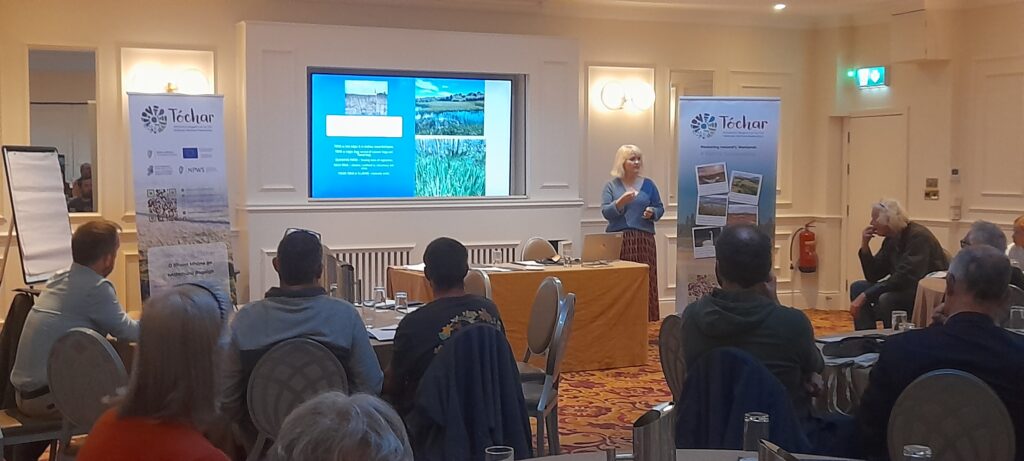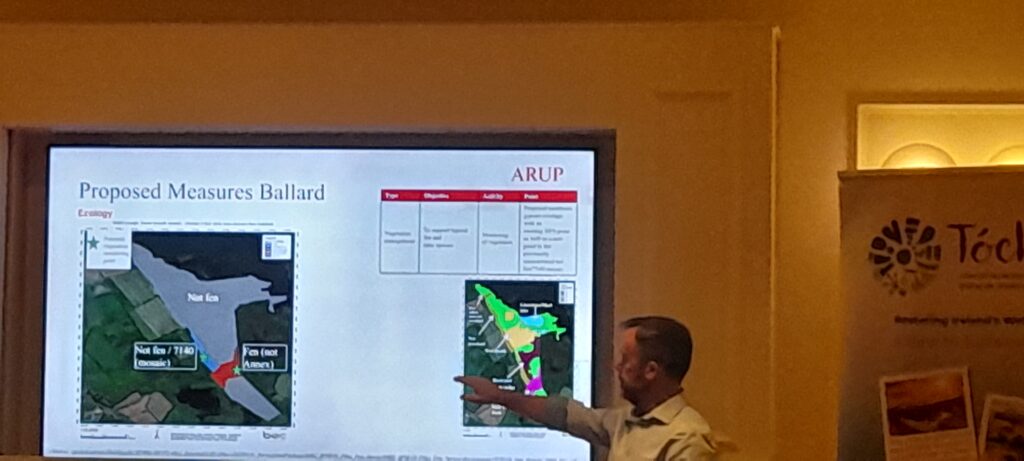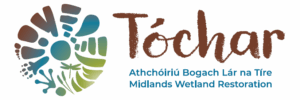On Thursday evening, (11 September), local Westmeath and Offaly residents gathered to learn about a new restoration project aimed at protecting and reviving some of the Midlands’ most unique natural treasures. The information evening, held on the shores of Lough Ennell, focused on the Tóchar Midlands Wetland Restoration project, which is bringing fens, a special type of peatland, back to health.
It provided local people with a chance to discuss the initiative directly with the team and learn about the first four sites selected for restoration: Scragh Bog, Lough Garr, Lough Owel, and Finn Lough.

The Tóchar Project is managed by the National Parks and Wildlife Service (NPWS) and co-funded by the Government of Ireland and the European Union through the EU Just Transition fund.
“It’s heartening to see the genuine interest people have in these magical fen sites,” said Tóchar Project Manager Shirley Clerkin. “We were delighted to welcome landowners and local people to our event, working together is the only solution to ensure nature is with us in the long-term. Our mission is to help nature in the midlands survive and thrive in its special wetlands, and at the same time activating a renewal of interest and custodianship of these important places.”

Project Manager, Shirley Clerkin outlines the work of Tóchar Midlands Wetland Restoration Scheme to the attendees
Fens are a special type of peatland, that due to flows of groundwater are more alkaline than acidic bogs. Their waterlogged condition slows down the decomposition of decaying plants, forming peat and carbon stores. Fens support a unique range of plants, including sedges, rushes, brown mosses and flowering plants like bogbean and marsh willowherb. Unlike bogs, which act like giant sponges, fens filter and clean water contributing to a healthier local environment.
Arup have provided a multi-disciplinary team of ecologists, hydrogeologists and engineers to work on the project.
Gerry Baker, from Arup, who is working on the fen’s restoration project said:
“Our role on this project is to provide the multi-disciplinary technical expertise needed to ensure the successful restoration of these critical wetland sites. We are applying a rigorous, evidence-based approach to the hydrological and ecological assessments, which is essential for developing effective, long-term restoration measures. This initiative aligns perfectly with our commitment to sustainable development and leveraging our engineering and environmental consulting skills to address key climate and biodiversity challenges.”

The Tóchar project plans to assess thirty-six fen sites across the Midlands over the next few years. The project, through its EU Just Transition funding will fully fund all the scientific assessments, on-the-ground restoration work, and monitoring. In addition, financial incentives are available to landowners who participate.
To learn more about the Tóchar Project, share your views, sign up to our newsletter or participate in upcoming initiatives, visit www.tocharwetlands.ie or follow us on Instagram @wetlandsrestoration or Facebook and LinkedIn Tóchar Wetlands Restoration.
For all media queries or to arrange an interview with a Tóchar spokesperson, please contact:
Marie Lynch, Carr Communications, marie@carrcommunications.ie, or 087 973 0522 or |
Aoife O’Mara, Carr Communications, aomara@carrcommunications.ie, 087 612 1642.
About the Tóchar Project www.tocharwetlands.ie
Tóchar is implementing Action 2.1 of the EU Just Transition Programme in Ireland, focusing on restoring degraded wetlands as part of a broader movement towards carbon neutrality. This project recognises that nature restoration is a social transition, where restoring landscapes goes hand in hand with strengthening communities and reconnecting people with their natural heritage.
The name Tóchar represents the path along the Just Transition journey and serves as a reminder that generations before us have used and experienced bogs and wetlands in many ways. A tóchar or togher is a path through a bog or wetland, and hundreds of these ancient pathways have been discovered deep within the peatlands of Ireland. Some were made from heavy oak transported over long distances, while others were constructed using different tree species or even flagstones.
EU Just Transition Fund
The purpose of the EU Just Transition Fund (EUJTF), co-funded by the Government of Ireland and the European Union, is to assist the territories most affected by the transition to a climate-neutral economy. In Ireland, this focuses on the wider Midlands region, where there have been direct impacts from the move away from peat production and electricity generation from peat. Up to €169 million, using Exchequer and EU resources, will be available in the Fund to facilitate a just transition towards a low-carbon economy in the Midlands.
By providing opportunities for employment in the Territory, the EU JTF can help to create an inclusive, attractive, healthy and sustainable place to live, work and visit.
The programme priorities of the EU JTF are as follows:
- Generating employment for communities formerly reliant on peat production by investing in the diversification of the local economy.
- Supporting the restoration, regeneration and repurposing of peatlands and related land.
- Providing communities in the wider Midlands with smart and sustainable mobility options to enable them to benefit directly from the green transition.
The Eastern and Midland Regional Assembly (EMRA) are the Managing Authority for Ireland’s EU Just Transition Fund Programme. Further information, including programme documentation, and links to information about open and future funding calls, is available on the EMRA website (www.emra.ie/eu-jtf/).
